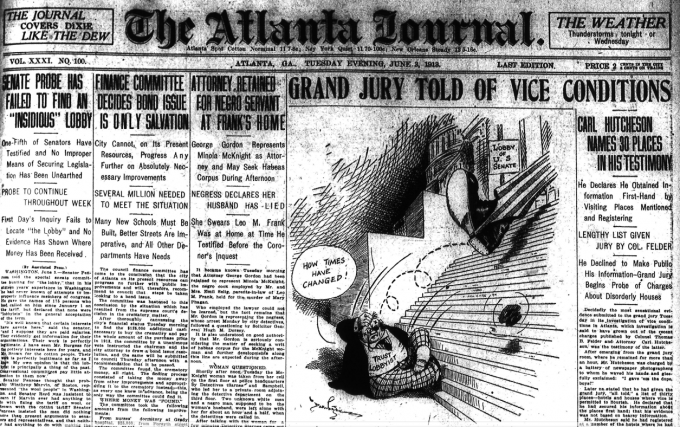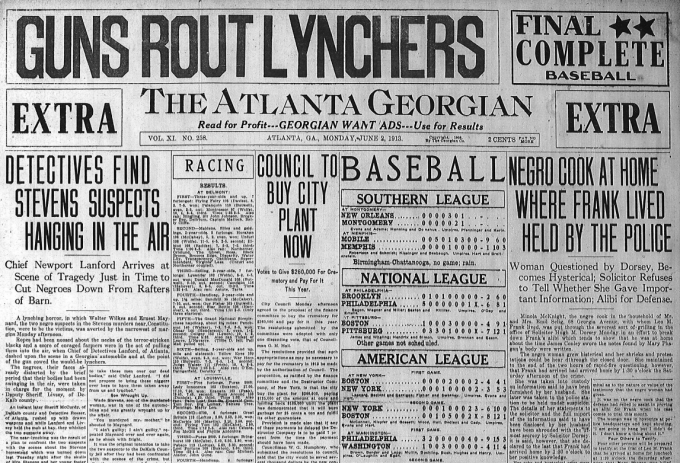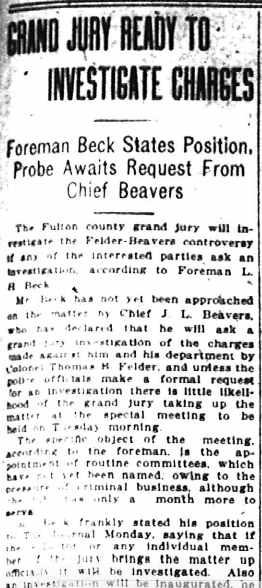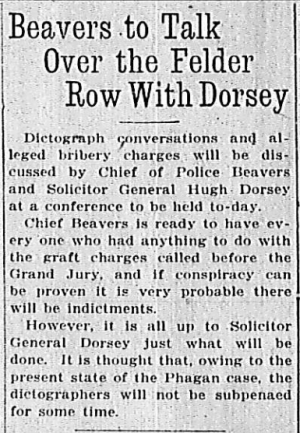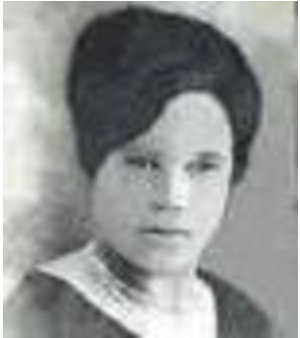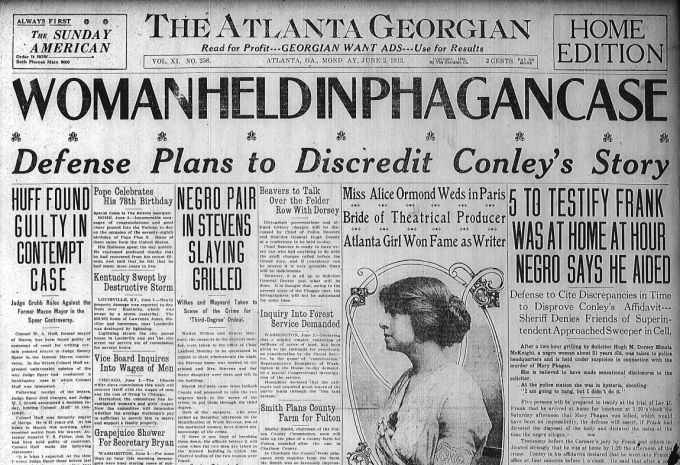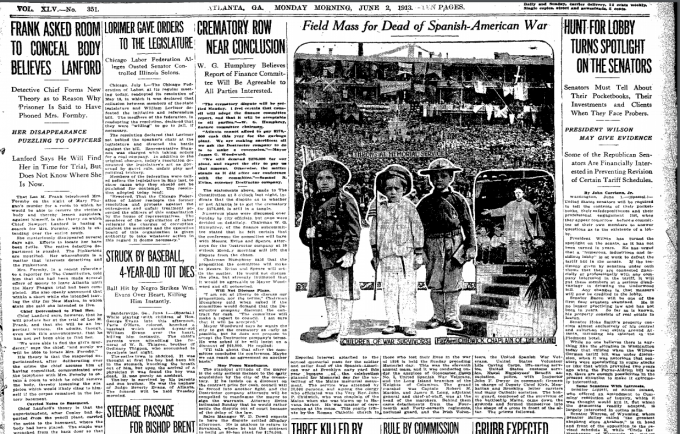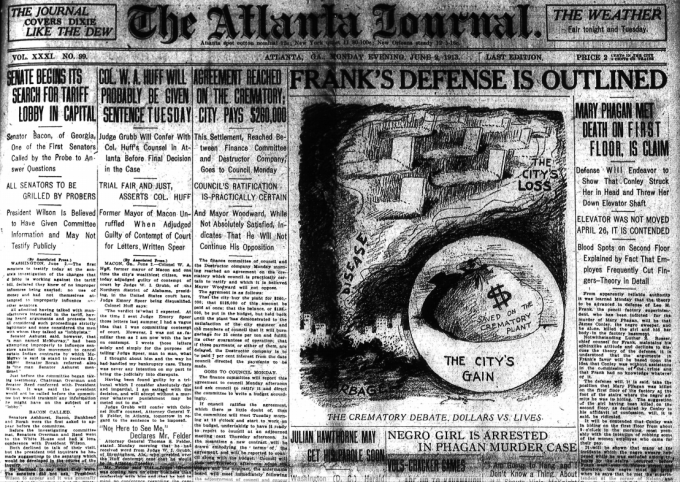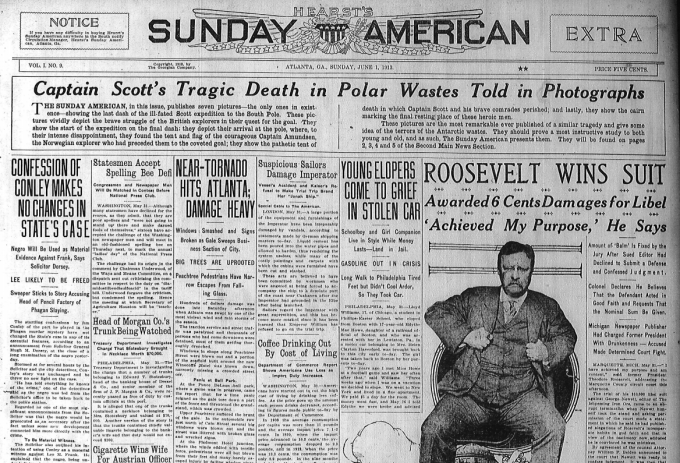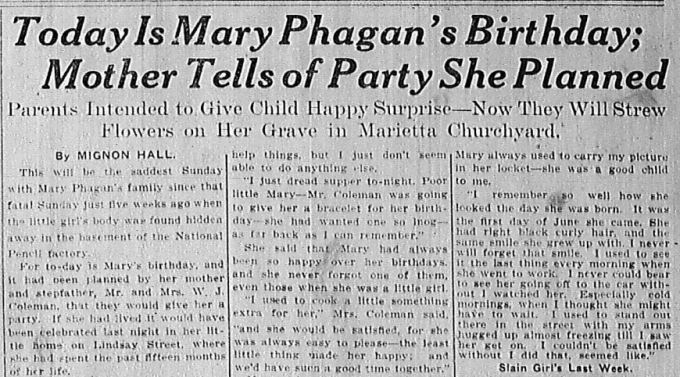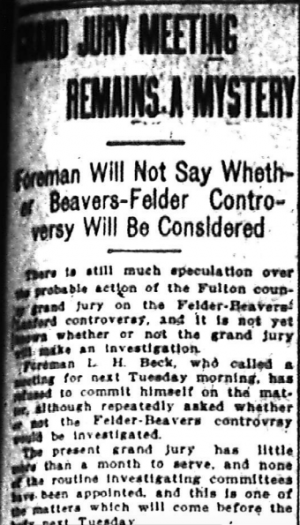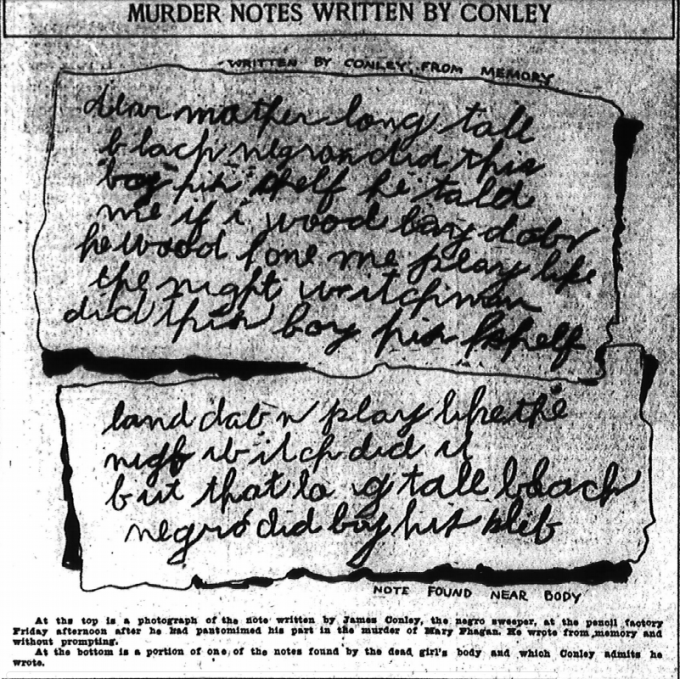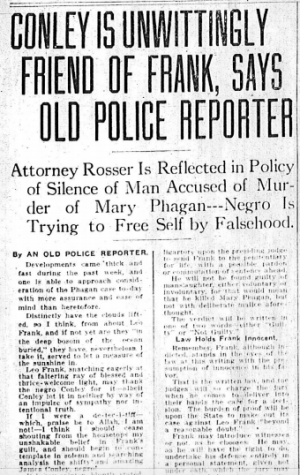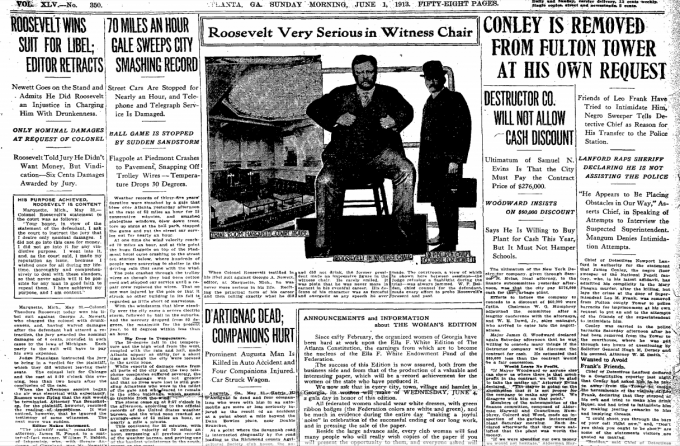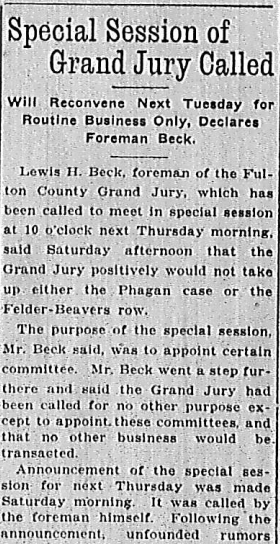Another in our series of new transcriptions of contemporary articles on the Leo Frank case.
Atlanta Journal
Tuesday, June 3rd, 1913
Carl Hutcheson Names 30 Places In His Testimony
He Declares He Obtained Information First-Hand by Visiting Places Mentioned and Registering
LENGTHY LIST GIVEN JURY BY COL. FELDER
He Declined to Make Public His Information—Grand Jury Begins Probe of Charges About Disorderly Houses
Decidedly the most sensational evidence submitted to the grand jury Tuesday in its investigation of vice conditions in Atlanta, which investigation is said to have grown out of the recent charges published by Colonel Thomas B. Felder and Attorney Carl Hutcheson, was the testimony of the latter.
After emerging from the grand jury room, where he remained for more than an hour, Mr. Hutcheson was charged by a battery of newspaper photographers to whom he waved his hands and gleefully exclaimed: “I gave ‘em the dope, boys!”
Later he stated that he had given the grand jury, “all told,” a list of thirty places—hotels and houses where vice is permitted to flourish. He declared that he had secured his information about the places first hand; that his evidence was not based on hearsy information.
Mr. Hutcheson said he had registered at a number of the hotels where he had arranged to have women sent to his rooms. He declared he had furnished the grand jury the names under which he had registered and that his own personal evidence was sufficient to justify many indictments.
To the grand jury Mr. Hutcheson exhibited a hotel kye [sic] which he stated he had forgotten to return. He declared that he had detailed his night visits to various places which are openly violating the law.
TOLD HIS OWN STORY.
“I was allowed to tell my story in my own way,” said Mr. Hutcheson, “and was interrupted by but few questions from the grand jurymen, who manifested much satisfaction over the facts which I furnished them. Frequently the jurymen gave vent to satisfied exclamations.
“I have not charged graft in the police department and was, of course, not questioned along this line. I did charge that disorderly houses were being protected if their presence was known to the police and I insisted that if the police did not have such knowledge they were incompetent. Continue Reading →

